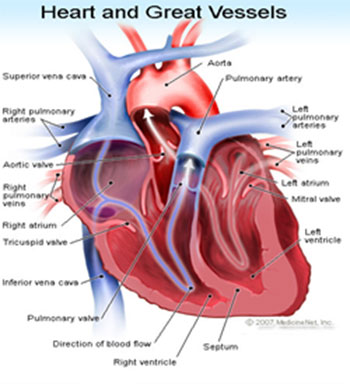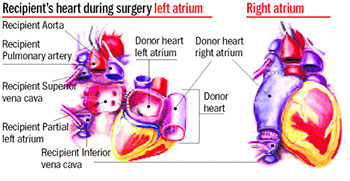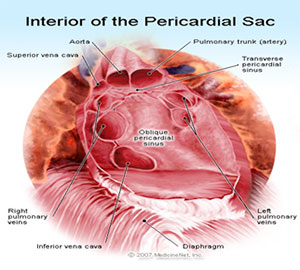Heart Transplant Surgery is the procedure in which a deceased heart is replaced with a perfectly working heart. The surgery is required for a patient with an end stage heart failure or for a person suffering from critical cardio disorders. In this surgical placement of human organ it becomes vital that the donor is a person declared brain dead but with a completely working heart. Once the Heart Transplant Surgery is done it is necessary to take medicines and supplements prescribed by the doctor to live a long and healthy life.


The very first stage of this process is to find a donor whose other body organs are in working condition except the brain. Once, search for the donor is complete the next procedure is to remove the deceased heart with a healthy one through the surgery. And in the third stage of heart transplant surgery the patient’s heart is replaced with a healthy one. In some cases the original heart is not completely removed but carefully trimmed to fit into the remaining parts of patient’s original heart.
Infections and heavy blood loss are the common complications of any surgery. In some cases rejection takes place in the patient’s body where the body refuses to accept the new heart and struggles to function smoothly. Let’s have a look at some of the common complications of Heart Surgery.
Chance of RejectionsPost Surgery the chance of rejection is always there. As a new heart is transplanted in the patient’s body thus there may be a possibility wherein patient’s body is not ready to accept the new heart refusing to function smoothly. It is suggested to take proper dose of medicines prescribed by the doctor and it is mandatory to take medicines on a regular basis.

Post any surgery the human body is prone to catch infection easily. Though these infections are curable but the patient is needed to be cognizant in case of fevers, unusual pains, or any other unusual feeling.
High Blood Pressure & DiabetesOne of the most common problems faced by patients post heart transplant surgery is High blood pressure. The patients needs to keep a regular check on blood pressures to avoid serious repercussions that may lead to damage of kidneys and can even cause heart strokes and attacks.